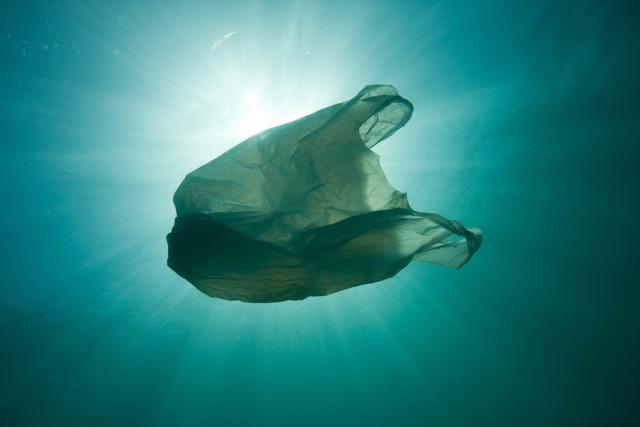
Plastic pollution is the most visible example of the havoc we’re causing to our planet. From our local beaches to the remote Arctic, it is choking our oceans and killing wildlife. One in two marine turtles have eaten plastic, 90% of seabirds have plastic in their stomachs, and it is estimated that 14 million tonnes of plastic are dumped in our oceans every year.[1]
And it’s getting worse. Without a global response, there could be more plastic in the sea than fish by 2050. We need urgent action at the UN to stop the catastrophic decline of nature – including an immediate agreement which will stop the leakage of plastics into the oceans.
Every single country is part of this plastics crisis. And every single one must be part of the solution: we need a united global response, with the world’s governments made accountable for ending marine plastics pollution.
By coming together to tackle plastic pollution, we can show that powerful, collective action to restore nature is possible.
Here are some top tips to reduce your plastic waste:
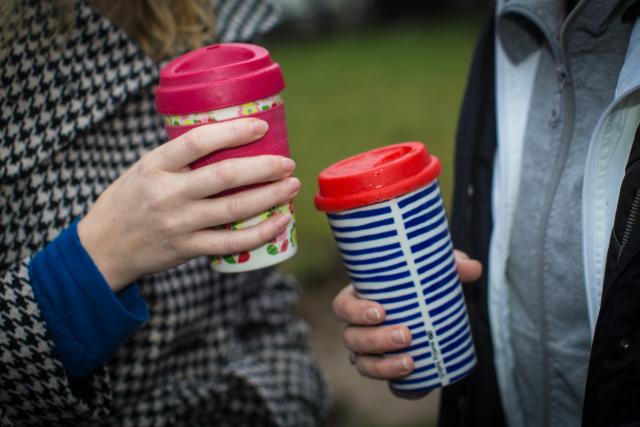
Coffee cups
Carry a reusable coffee cup or flask. In 2019, an estimated 4.2 billion disposable coffee cups and 2.9 billion cup lids were sold in the UK (WRAP, 2022)[2] — contributing to the plastic pollution problem. Of these, less than 7% were recycled (WRAP, 2022), meaning that, after lasting just minutes in your hand, they will sit in landfill or be burnt with other rubbish, continuing to produce pollution. Almost all coffee outlets will refill reusable cups and some offer a discount. There are many eco-friendly options for reusable cups out there so choose one to suit you.
Bring your own bottle
We produce 78 million tonnes of plastic globally but just 2% of this is made from recycled material (Ellen MacArthur Foundation)[3]. This means common items like plastic bottles are produced from virgin plastic, used once and thrown away, at a cost to our planet. Plastic bottles are one of the most common sources of plastic pollution, and are frequently found on beach cleans globally. The lids commonly end up in seabirds’ stomachs.
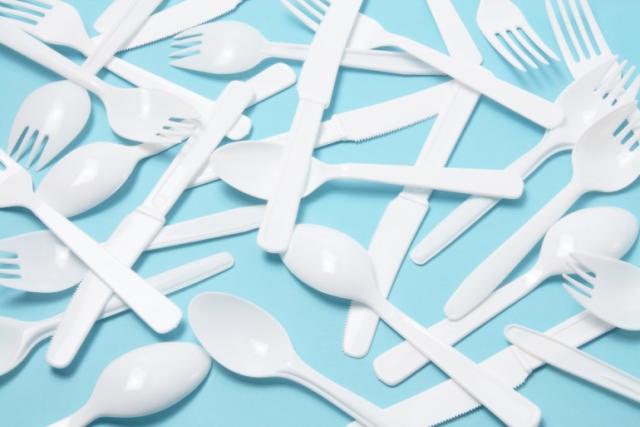
Say no to plastic cutlery and straws
In England, single-use plastic plates and cutlery are set to be banned (The Guardian)[4]. We use an estimated 4.25 billion pieces of disposable cutlery every year (Defra)[5]. By carrying a spork, a spare fork from home, or your own mini-reusable set including reusable straw, you can help cut down on disposables which would have turned into ocean pollution. Where possible, avoid straws completely, even if they’re made from paper, as this reduces the need for resources to produce and dispose of them.
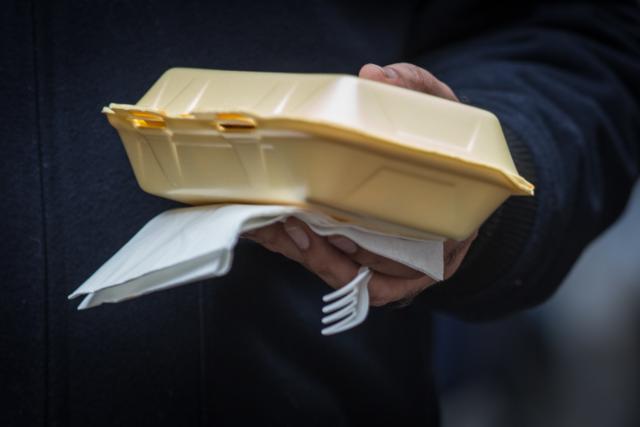
Lunch packaging
If you’re getting lunch while you’re out, consider options to cut down on disposable packaging. For example, could you eat-in at a coffee shop rather than getting things to-go? This allows reusable crockery to be used, removes packaging for lunch options, and reduces waste as reusables will be washed afterwards. Alternatively, if you do need to get food to-go, could you bring your own container to a local café, sandwich shop, or food stall? By asking businesses to refill your container, you save them money and save the planet from disposable plastic! Some businesses will reward customers with a discount for bringing their own reusable lunch container, so always check with the owner.

Ditch the cling wrap
Unlike cling film that cannot be recycled, consider alternatives such as aluminium foil which can be recycled. If you are using foil, make sure you clean it and put it in the recycling bin after use. Another alternative is Beeswax Wraps. Made using 100% cotton, pine resin, jojoba oil and various waxes they are a reusable and sustainable alternative to cling film, and no nasties will leach into your food while it’s stored. Other alternatives include reusable lunchboxes, or elasticated fabric bowl covers which are useful for storing bowls of food in the fridge.
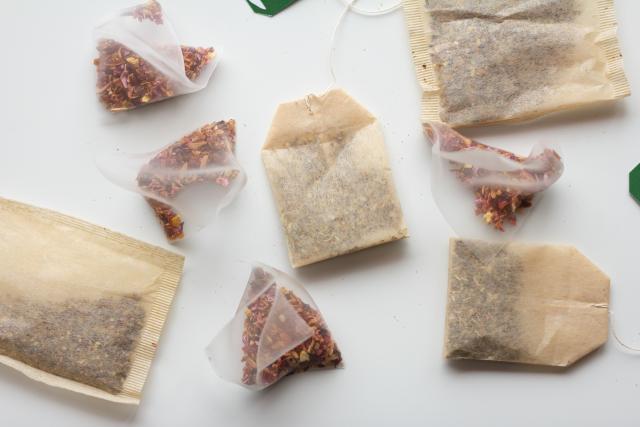
Teabags
Some teabags contain hidden plastics such as glues used to seal the bags, in the fabric of the bag itself, or in the packaging. For this reason, not all teabags can go into garden compost as they won’t break down (or may break down into microplastics). And some alternative bags, such as those made from polylactic acid (PLA), can’t go in your council food waste collection. Always check what you can put in your food bin where you live, using your council website. To avoid these plastics, try loose leaf tea which can be used with a strainer, or reusable teabags. Alternatively, look for brands that are taking action to remove plastic from their tea – try bags that are unbleached and organic, in cardboard packaging.
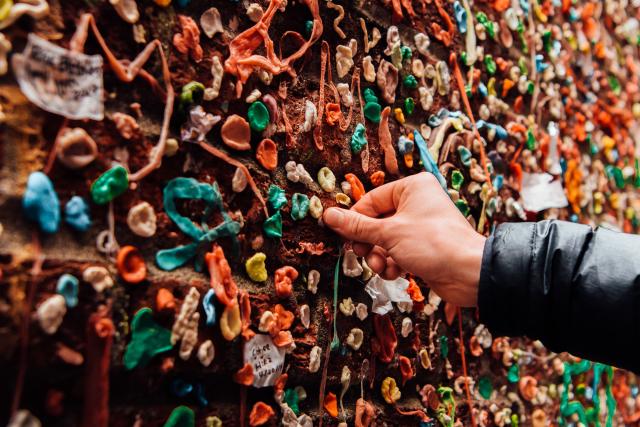
Give up gum
In England, around 87% of streets are stained with gum (Keep Britain Tidy)[6] so always make sure you dispose of chewing gum in an appropriate bin, never on the floor. Did you know conventional chewing gum is made from plastic? This makes it take longer to decompose and it will break down into microplastics. Several plastic-free alternatives are now on the shelves, so look for brands that detail the ingredients of their gum and are committed to ending plastic pollution.
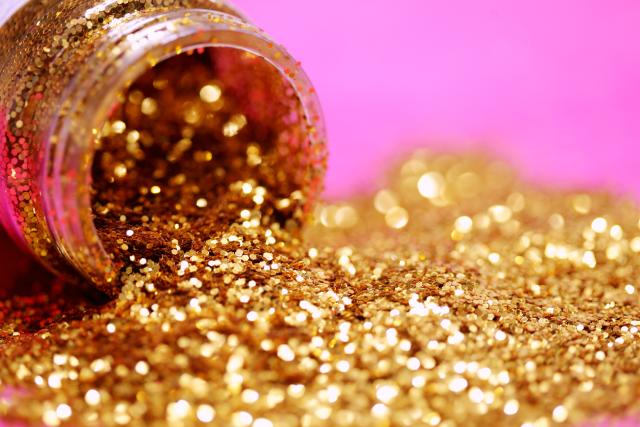
Glitter, the one member of the party that NEVER leaves!
All glitter is made from plastic. Due to its size and composition, glitter can last for many years in natural environments, breaking down into smaller microplastics and being ingested by wildlife. Even biodegradable glitter is a myth. There is no legal limit on how long it takes to decompose in the natural environment before it is called ‘biodegradable’, so many of the biodegradable glitters could last as long as plastic. It also has the same impact on wildlife and the natural environment – small particles are easily ingested by wildlife and could have harmful effects. Instead, steer clear of all glitter and opt for alternative decorations instead.

Bring back the milkman
Consider getting your milk delivered in glass bottles, which are reused and recycled instead of your usual plastic pint. More and more of us are making the switch to have milk and other items, like fruit juices, eggs and bread, delivered by a milkman without the plastic packaging. In the UK, around 614,000 people now use a milk delivery service (AHDB)[7] so check to see if you can make the switch in your area.
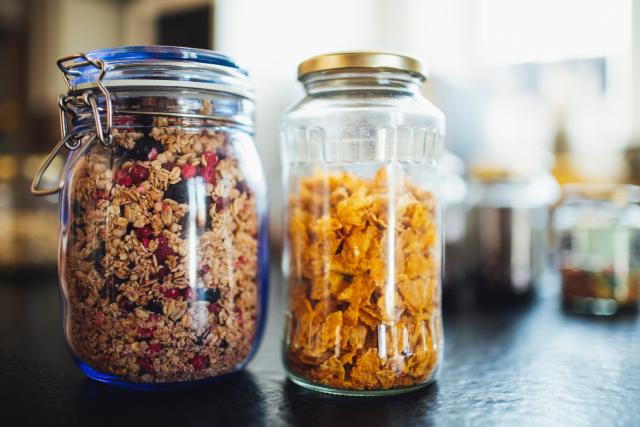
Keep plastics in use for longer
Going plastic-free has its positives and negatives. Plastic weighs less than glass so can reduce transport emissions, but glass is more widely recycled and contains a higher portion of recycled content which can reduce its impact on resource consumption globally. If removing plastic from your life completely is unfeasible, make your plastic containers go further. For example, when a plastic bottle finishes, try your local refill shop and fill those containers with new products including wet and dry goods. We can also reuse containers like old butter and ice cream tubs as sandwich boxes, useful tubs for screws or nails, or planters for seedlings.
Start simple
And if it’s too daunting to know where to start, try making one small change and committing to it. For example, could you switch to a glass ketchup bottle instead of a squeaky plastic one? When you’re finished, wash it out and reuse it, refill it, or recycle it appropriately.
Sources
[1] IUCN, 2021, ‘Marine plastic pollution’ issues brief.
Available at: https://www.iucn.org/resources/issues-brief/marine-plastic-pollution
[2] Waste Resource Action Partnership, WRAP, 2022, ‘Single-use Cups and On-the-Go Fibre-composite Food Packaging’.
Available at: https://wrap.org.uk/sites/default/files/2022-02/WRAP-fibre%20composite%20packaging%20report.pdf
[3] Ellen MacArthur Foundation, 2016, ‘The New Plastics Economy: Rethinking The Future Of Plastics’.
Available at: https://ellenmacarthurfoundation.org/the-new-plastics-economy-rethinking-the-future-of-plastics
[4] The Guardian, 2023, ‘Single-use plastic cutlery and plates to be banned in England’.
Available at: https://www.theguardian.com/environment/2023/jan/08/single-use-plastic-cutlery-and-plates-to-be-banned-in-england
[5] Defra (Department for Environment, Food and Rural Affairs), 2021, ‘Plans unveiled to ban single-use plastics’.
Available at: https://www.gov.uk/government/news/plans-unveiled-to-ban-single-use-plastics
[6] Keep Britain Tidy, ‘Chewing gum litter’.
Available at: https://www.keepbritaintidy.org/local-authorities/reduce-litter/gum-litter
[7] AHDB (Agriculture and Horticulture Development Board, 2021, ‘Milkmen still got milk as they retain sales volume gains’.
Available at: https://ahdb.org.uk/news/consumer-insight-milkmen-still-got-milk-as-they-retain-sales-volume-gains
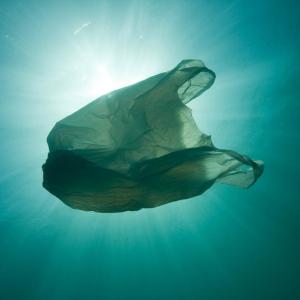 Plastic - the never ending story
Plastic - the never ending story
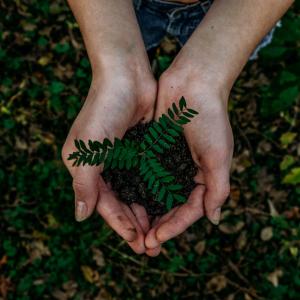 WWF Guide to Greenwashing
WWF Guide to Greenwashing
 Some of the most popular WWF Blogs
Some of the most popular WWF Blogs